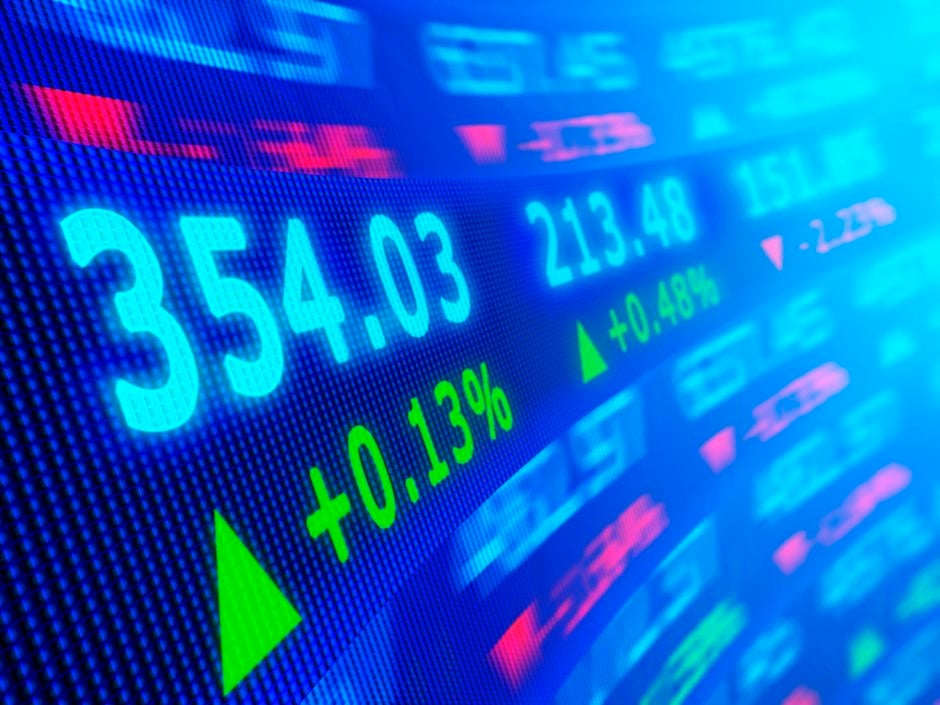The biggest lesson March Madness can teach us about trading and investing

"I had a buddy who picked a perfect bracket two years in a row! He went back and looked at the players' high school stats and everything!"
I was on a college trip with our investing club with that guy. You know the kind, the dreaded "One-Upper":
...If you had a friend who got a perfect score on a college entrance exam, Mr. One-Upper had done it himself...in middle school.
...If you went on a helicopter ride on a family trip to Hawaii, his uncle had invented the helicopter...and then used it to discover Hawaii.
...And as I had just found out, if you had once correctly picked 15 of the first 16 games of the NCAA basketball tournament, he had a buddy who put your "accomplishment" to shame.
He was, of course, either lying or badly misinformed. But his assertion gets at the most fundamental reason that its possible, though far from easy, for some traders and investors to earn market-beating returns.
For those who are not familiar, the NCAA college basketball tournament, colloquially dubbed "March Madness," has resumed its annual tradition of taking over the computer screens and attentions spans of Americans. According to a study by consultancy Challenger, Gray & Christmas, the act of filling out the brackets, checking scores, at outright watching the games at work costs US employers upwards of $4 Billion in lost productivity each year.
And if you've ever created your own bracket, you know that there's one emotion that quickly comes to dominate all others: regret. If only you had done a bit more research into the free throw shooting percentages of that team or the propensity for this team to struggle against zone defense, then you would have seen that upset coming.
And it's a fool's errand. At some point, the relationship between the sophistication of your analysis and the likelihood of success breaks down. The role of lucky and randomness takes over.
The world's most renowned investor, Warren Buffett, famously offered a cool $1B to anyone who filled out a perfect bracket. The oft-cited odds of correctly picking 63 consecutive games is 1 in 9,200,000,000,000,000,000, though the experts at FiveThirtyEight suggest that the actual odds are "only" 1 in about 1,500,000,000 most years. The point is that, even if you deeply researched the players' high school stats, as Mr. One Upper's friend ostensibly did, there are too many random variables to correctly predict every game...much less to do it consecutively!
The best you can hope for is a bracket that identifies potentially vulnerable favorites, underseeded upsets and correctly selects the champion. This is the same exact type of attitude that you should adopt with your trading. With all the economic, political, and technical crosscurrents that buffet the market every day, it's impossible to design a trading or investing strategy that wins 100% of its trades...even if you research the CEO's high school math grades!
James O'Shaughnessy, who quite literally wrote the book on investing strategy (What Works on Wall Street), recently opined on a similar topic. He studied the historic probability of Warren Buffett's Berkshire Hathaway (BRK.B), which we know in hindsight has been one of the greatest stocks of all-time, outperforming the overall stock market over different time periods:
Source: O'Shaughnessy Asset Management
Obviously, Buffett's track record is stellar, but even "The Oracle of Omaha" has had a greater than 1 in four shot of underperforming the overall stock market in any given year. Indeed, BRK.B has trailed the stock market over a five-year basis nearly 10% of the time.
Imagine where you were five years ago. Now imagine that your favorite investment had underperformed a simple, stupid S&P 500 index fund over those last five years. Would you have the confidence and temerity to stick with that investment? Chances are many of Buffett's "long-term" investors jumped ship during these periods of underperformance, which was in hindsight, one of the worst things they could do.
Don't fall into Mr. One-Upper's trap of thinking you can pick the perfect bracket or the perfect trading/investing strategy. The best you can hope for is a consistent process that identifies higher-probability outcomes for your timeframe, limits risk in the (inevitable) event that the market moves against you, and the discipline to stick to your strategy even when it temporarily underperforms.
We might not have quite as long of a track record as Warren Buffett, but that's exactly what we at Faraday Research have been doing for years...just don't ask us for help with your bracket!
Thanks,
Matt
Author

Matt Weller, CFA, CMT
Faraday Research
Matthew is a former Senior Market Analyst at Forex.com whose research is regularly quoted in The Wall Street Journal, Bloomberg and Reuters. Based in the US, Matthew provides live trading recommendations during US market hours, c


















